-
EXECUTIVE SUMMARY
-
Market Overview
-
Key Findings
-
Market Segmentation
-
Competitive Landscape
-
Challenges and Opportunities
-
Future Outlook
-
MARKET INTRODUCTION
-
Definition
-
Scope of the study
- Research Objective
- Assumption
- Limitations
-
RESEARCH METHODOLOGY
-
Overview
-
Data Mining
-
Secondary Research
-
Primary Research
- Primary Interviews and Information Gathering Process
- Breakdown of Primary Respondents
-
Forecasting Model
-
Market Size Estimation
- Bottom-Up Approach
- Top-Down Approach
-
Data Triangulation
-
Validation
-
MARKET DYNAMICS
-
Overview
-
Drivers
-
Restraints
-
Opportunities
-
MARKET FACTOR ANALYSIS
-
Value chain Analysis
-
Porter's Five Forces Analysis
- Bargaining Power of Suppliers
- Bargaining Power of Buyers
- Threat of New Entrants
- Threat of Substitutes
- Intensity of Rivalry
-
COVID-19 Impact Analysis
- Market Impact Analysis
- Regional Impact
- Opportunity and Threat Analysis
-
DATABASE MANAGEMENT SYSTEM (DBMS) MARKET, BY DEPLOYMENT TYPE (USD BILLION)
-
On-Premises
-
Cloud-Based
-
Hybrid
-
DATABASE MANAGEMENT SYSTEM (DBMS) MARKET, BY DATABASE TYPE (USD BILLION)
-
Relational Database
-
NoSQL Database
-
NewSQL Database
-
Object-Oriented Database
-
DATABASE MANAGEMENT SYSTEM (DBMS) MARKET, BY END USER (USD BILLION)
-
IT and Telecom
-
BFSI
-
Retail
-
Healthcare
-
Government
-
DATABASE MANAGEMENT SYSTEM (DBMS) MARKET, BY COMPONENT (USD BILLION)
-
Software
-
Services
-
DATABASE MANAGEMENT SYSTEM (DBMS) MARKET, BY REGIONAL (USD BILLION)
-
North America
- US
- Canada
-
Europe
- Germany
- UK
- France
- Russia
- Italy
- Spain
- Rest of Europe
-
APAC
- China
- India
- Japan
- South Korea
- Malaysia
- Thailand
- Indonesia
- Rest of APAC
-
South America
- Brazil
- Mexico
- Argentina
- Rest of South America
-
MEA
- GCC Countries
- South Africa
- Rest of MEA
-
COMPETITIVE LANDSCAPE
-
Overview
-
Competitive Analysis
-
Market share Analysis
-
Major Growth Strategy in the Database Management System (DBMS) Market
-
Competitive Benchmarking
-
Leading Players in Terms of Number of Developments in the Database Management System (DBMS) Market
-
Key developments and growth strategies
- New Product Launch/Service Deployment
- Merger & Acquisitions
- Joint Ventures
-
Major Players Financial Matrix
- Sales and Operating Income
- Major Players R&D Expenditure. 2023
-
COMPANY PROFILES
-
Amazon
- Financial Overview
- Products Offered
- Key Developments
- SWOT Analysis
- Key Strategies
-
IBM
- Financial Overview
- Products Offered
- Key Developments
- SWOT Analysis
- Key Strategies
-
Alteryx
- Financial Overview
- Products Offered
- Key Developments
- SWOT Analysis
- Key Strategies
-
SAP
- Financial Overview
- Products Offered
- Key Developments
- SWOT Analysis
- Key Strategies
-
Teradata
- Financial Overview
- Products Offered
- Key Developments
- SWOT Analysis
- Key Strategies
-
Salesforce
- Financial Overview
- Products Offered
- Key Developments
- SWOT Analysis
- Key Strategies
-
Redis Labs
- Financial Overview
- Products Offered
- Key Developments
- SWOT Analysis
- Key Strategies
-
Google
- Financial Overview
- Products Offered
- Key Developments
- SWOT Analysis
- Key Strategies
-
Cockroach Labs
- Financial Overview
- Products Offered
- Key Developments
- SWOT Analysis
- Key Strategies
-
Snowflake
- Financial Overview
- Products Offered
- Key Developments
- SWOT Analysis
- Key Strategies
-
Microsoft
- Financial Overview
- Products Offered
- Key Developments
- SWOT Analysis
- Key Strategies
-
MariaDB
- Financial Overview
- Products Offered
- Key Developments
- SWOT Analysis
- Key Strategies
-
MongoDB
- Financial Overview
- Products Offered
- Key Developments
- SWOT Analysis
- Key Strategies
-
Cassandra
- Financial Overview
- Products Offered
- Key Developments
- SWOT Analysis
- Key Strategies
-
Oracle
- Financial Overview
- Products Offered
- Key Developments
- SWOT Analysis
- Key Strategies
-
APPENDIX
-
References
-
Related Reports
-
LIST OF TABLES
-
LIST OF ASSUMPTIONS
-
NORTH AMERICA DATABASE MANAGEMENT SYSTEM (DBMS) MARKET SIZE ESTIMATES & FORECAST, BY DEPLOYMENT TYPE, 2019-2035 (USD BILLIONS)
-
NORTH AMERICA DATABASE MANAGEMENT SYSTEM (DBMS) MARKET SIZE ESTIMATES & FORECAST, BY DATABASE TYPE, 2019-2035 (USD BILLIONS)
-
NORTH AMERICA DATABASE MANAGEMENT SYSTEM (DBMS) MARKET SIZE ESTIMATES & FORECAST, BY END USER, 2019-2035 (USD BILLIONS)
-
NORTH AMERICA DATABASE MANAGEMENT SYSTEM (DBMS) MARKET SIZE ESTIMATES & FORECAST, BY COMPONENT, 2019-2035 (USD BILLIONS)
-
NORTH AMERICA DATABASE MANAGEMENT SYSTEM (DBMS) MARKET SIZE ESTIMATES & FORECAST, BY REGIONAL, 2019-2035 (USD BILLIONS)
-
US DATABASE MANAGEMENT SYSTEM (DBMS) MARKET SIZE ESTIMATES & FORECAST, BY DEPLOYMENT TYPE, 2019-2035 (USD BILLIONS)
-
US DATABASE MANAGEMENT SYSTEM (DBMS) MARKET SIZE ESTIMATES & FORECAST, BY DATABASE TYPE, 2019-2035 (USD BILLIONS)
-
US DATABASE MANAGEMENT SYSTEM (DBMS) MARKET SIZE ESTIMATES & FORECAST, BY END USER, 2019-2035 (USD BILLIONS)
-
US DATABASE MANAGEMENT SYSTEM (DBMS) MARKET SIZE ESTIMATES & FORECAST, BY COMPONENT, 2019-2035 (USD BILLIONS)
-
US DATABASE MANAGEMENT SYSTEM (DBMS) MARKET SIZE ESTIMATES & FORECAST, BY REGIONAL, 2019-2035 (USD BILLIONS)
-
CANADA DATABASE MANAGEMENT SYSTEM (DBMS) MARKET SIZE ESTIMATES & FORECAST, BY DEPLOYMENT TYPE, 2019-2035 (USD BILLIONS)
-
CANADA DATABASE MANAGEMENT SYSTEM (DBMS) MARKET SIZE ESTIMATES & FORECAST, BY DATABASE TYPE, 2019-2035 (USD BILLIONS)
-
CANADA DATABASE MANAGEMENT SYSTEM (DBMS) MARKET SIZE ESTIMATES & FORECAST, BY END USER, 2019-2035 (USD BILLIONS)
-
CANADA DATABASE MANAGEMENT SYSTEM (DBMS) MARKET SIZE ESTIMATES & FORECAST, BY COMPONENT, 2019-2035 (USD BILLIONS)
-
CANADA DATABASE MANAGEMENT SYSTEM (DBMS) MARKET SIZE ESTIMATES & FORECAST, BY REGIONAL, 2019-2035 (USD BILLIONS)
-
EUROPE DATABASE MANAGEMENT SYSTEM (DBMS) MARKET SIZE ESTIMATES & FORECAST, BY DEPLOYMENT TYPE, 2019-2035 (USD BILLIONS)
-
EUROPE DATABASE MANAGEMENT SYSTEM (DBMS) MARKET SIZE ESTIMATES & FORECAST, BY DATABASE TYPE, 2019-2035 (USD BILLIONS)
-
EUROPE DATABASE MANAGEMENT SYSTEM (DBMS) MARKET SIZE ESTIMATES & FORECAST, BY END USER, 2019-2035 (USD BILLIONS)
-
EUROPE DATABASE MANAGEMENT SYSTEM (DBMS) MARKET SIZE ESTIMATES & FORECAST, BY COMPONENT, 2019-2035 (USD BILLIONS)
-
EUROPE DATABASE MANAGEMENT SYSTEM (DBMS) MARKET SIZE ESTIMATES & FORECAST, BY REGIONAL, 2019-2035 (USD BILLIONS)
-
GERMANY DATABASE MANAGEMENT SYSTEM (DBMS) MARKET SIZE ESTIMATES & FORECAST, BY DEPLOYMENT TYPE, 2019-2035 (USD BILLIONS)
-
GERMANY DATABASE MANAGEMENT SYSTEM (DBMS) MARKET SIZE ESTIMATES & FORECAST, BY DATABASE TYPE, 2019-2035 (USD BILLIONS)
-
GERMANY DATABASE MANAGEMENT SYSTEM (DBMS) MARKET SIZE ESTIMATES & FORECAST, BY END USER, 2019-2035 (USD BILLIONS)
-
GERMANY DATABASE MANAGEMENT SYSTEM (DBMS) MARKET SIZE ESTIMATES & FORECAST, BY COMPONENT, 2019-2035 (USD BILLIONS)
-
GERMANY DATABASE MANAGEMENT SYSTEM (DBMS) MARKET SIZE ESTIMATES & FORECAST, BY REGIONAL, 2019-2035 (USD BILLIONS)
-
UK DATABASE MANAGEMENT SYSTEM (DBMS) MARKET SIZE ESTIMATES & FORECAST, BY DEPLOYMENT TYPE, 2019-2035 (USD BILLIONS)
-
UK DATABASE MANAGEMENT SYSTEM (DBMS) MARKET SIZE ESTIMATES & FORECAST, BY DATABASE TYPE, 2019-2035 (USD BILLIONS)
-
UK DATABASE MANAGEMENT SYSTEM (DBMS) MARKET SIZE ESTIMATES & FORECAST, BY END USER, 2019-2035 (USD BILLIONS)
-
UK DATABASE MANAGEMENT SYSTEM (DBMS) MARKET SIZE ESTIMATES & FORECAST, BY COMPONENT, 2019-2035 (USD BILLIONS)
-
UK DATABASE MANAGEMENT SYSTEM (DBMS) MARKET SIZE ESTIMATES & FORECAST, BY REGIONAL, 2019-2035 (USD BILLIONS)
-
FRANCE DATABASE MANAGEMENT SYSTEM (DBMS) MARKET SIZE ESTIMATES & FORECAST, BY DEPLOYMENT TYPE, 2019-2035 (USD BILLIONS)
-
FRANCE DATABASE MANAGEMENT SYSTEM (DBMS) MARKET SIZE ESTIMATES & FORECAST, BY DATABASE TYPE, 2019-2035 (USD BILLIONS)
-
FRANCE DATABASE MANAGEMENT SYSTEM (DBMS) MARKET SIZE ESTIMATES & FORECAST, BY END USER, 2019-2035 (USD BILLIONS)
-
FRANCE DATABASE MANAGEMENT SYSTEM (DBMS) MARKET SIZE ESTIMATES & FORECAST, BY COMPONENT, 2019-2035 (USD BILLIONS)
-
FRANCE DATABASE MANAGEMENT SYSTEM (DBMS) MARKET SIZE ESTIMATES & FORECAST, BY REGIONAL, 2019-2035 (USD BILLIONS)
-
RUSSIA DATABASE MANAGEMENT SYSTEM (DBMS) MARKET SIZE ESTIMATES & FORECAST, BY DEPLOYMENT TYPE, 2019-2035 (USD BILLIONS)
-
RUSSIA DATABASE MANAGEMENT SYSTEM (DBMS) MARKET SIZE ESTIMATES & FORECAST, BY DATABASE TYPE, 2019-2035 (USD BILLIONS)
-
RUSSIA DATABASE MANAGEMENT SYSTEM (DBMS) MARKET SIZE ESTIMATES & FORECAST, BY END USER, 2019-2035 (USD BILLIONS)
-
RUSSIA DATABASE MANAGEMENT SYSTEM (DBMS) MARKET SIZE ESTIMATES & FORECAST, BY COMPONENT, 2019-2035 (USD BILLIONS)
-
RUSSIA DATABASE MANAGEMENT SYSTEM (DBMS) MARKET SIZE ESTIMATES & FORECAST, BY REGIONAL, 2019-2035 (USD BILLIONS)
-
ITALY DATABASE MANAGEMENT SYSTEM (DBMS) MARKET SIZE ESTIMATES & FORECAST, BY DEPLOYMENT TYPE, 2019-2035 (USD BILLIONS)
-
ITALY DATABASE MANAGEMENT SYSTEM (DBMS) MARKET SIZE ESTIMATES & FORECAST, BY DATABASE TYPE, 2019-2035 (USD BILLIONS)
-
ITALY DATABASE MANAGEMENT SYSTEM (DBMS) MARKET SIZE ESTIMATES & FORECAST, BY END USER, 2019-2035 (USD BILLIONS)
-
ITALY DATABASE MANAGEMENT SYSTEM (DBMS) MARKET SIZE ESTIMATES & FORECAST, BY COMPONENT, 2019-2035 (USD BILLIONS)
-
ITALY DATABASE MANAGEMENT SYSTEM (DBMS) MARKET SIZE ESTIMATES & FORECAST, BY REGIONAL, 2019-2035 (USD BILLIONS)
-
SPAIN DATABASE MANAGEMENT SYSTEM (DBMS) MARKET SIZE ESTIMATES & FORECAST, BY DEPLOYMENT TYPE, 2019-2035 (USD BILLIONS)
-
SPAIN DATABASE MANAGEMENT SYSTEM (DBMS) MARKET SIZE ESTIMATES & FORECAST, BY DATABASE TYPE, 2019-2035 (USD BILLIONS)
-
SPAIN DATABASE MANAGEMENT SYSTEM (DBMS) MARKET SIZE ESTIMATES & FORECAST, BY END USER, 2019-2035 (USD BILLIONS)
-
SPAIN DATABASE MANAGEMENT SYSTEM (DBMS) MARKET SIZE ESTIMATES & FORECAST, BY COMPONENT, 2019-2035 (USD BILLIONS)
-
SPAIN DATABASE MANAGEMENT SYSTEM (DBMS) MARKET SIZE ESTIMATES & FORECAST, BY REGIONAL, 2019-2035 (USD BILLIONS)
-
REST OF EUROPE DATABASE MANAGEMENT SYSTEM (DBMS) MARKET SIZE ESTIMATES & FORECAST, BY DEPLOYMENT TYPE, 2019-2035 (USD BILLIONS)
-
REST OF EUROPE DATABASE MANAGEMENT SYSTEM (DBMS) MARKET SIZE ESTIMATES & FORECAST, BY DATABASE TYPE, 2019-2035 (USD BILLIONS)
-
REST OF EUROPE DATABASE MANAGEMENT SYSTEM (DBMS) MARKET SIZE ESTIMATES & FORECAST, BY END USER, 2019-2035 (USD BILLIONS)
-
REST OF EUROPE DATABASE MANAGEMENT SYSTEM (DBMS) MARKET SIZE ESTIMATES & FORECAST, BY COMPONENT, 2019-2035 (USD BILLIONS)
-
REST OF EUROPE DATABASE MANAGEMENT SYSTEM (DBMS) MARKET SIZE ESTIMATES & FORECAST, BY REGIONAL, 2019-2035 (USD BILLIONS)
-
APAC DATABASE MANAGEMENT SYSTEM (DBMS) MARKET SIZE ESTIMATES & FORECAST, BY DEPLOYMENT TYPE, 2019-2035 (USD BILLIONS)
-
APAC DATABASE MANAGEMENT SYSTEM (DBMS) MARKET SIZE ESTIMATES & FORECAST, BY DATABASE TYPE, 2019-2035 (USD BILLIONS)
-
APAC DATABASE MANAGEMENT SYSTEM (DBMS) MARKET SIZE ESTIMATES & FORECAST, BY END USER, 2019-2035 (USD BILLIONS)
-
APAC DATABASE MANAGEMENT SYSTEM (DBMS) MARKET SIZE ESTIMATES & FORECAST, BY COMPONENT, 2019-2035 (USD BILLIONS)
-
APAC DATABASE MANAGEMENT SYSTEM (DBMS) MARKET SIZE ESTIMATES & FORECAST, BY REGIONAL, 2019-2035 (USD BILLIONS)
-
CHINA DATABASE MANAGEMENT SYSTEM (DBMS) MARKET SIZE ESTIMATES & FORECAST, BY DEPLOYMENT TYPE, 2019-2035 (USD BILLIONS)
-
CHINA DATABASE MANAGEMENT SYSTEM (DBMS) MARKET SIZE ESTIMATES & FORECAST, BY DATABASE TYPE, 2019-2035 (USD BILLIONS)
-
CHINA DATABASE MANAGEMENT SYSTEM (DBMS) MARKET SIZE ESTIMATES & FORECAST, BY END USER, 2019-2035 (USD BILLIONS)
-
CHINA DATABASE MANAGEMENT SYSTEM (DBMS) MARKET SIZE ESTIMATES & FORECAST, BY COMPONENT, 2019-2035 (USD BILLIONS)
-
CHINA DATABASE MANAGEMENT SYSTEM (DBMS) MARKET SIZE ESTIMATES & FORECAST, BY REGIONAL, 2019-2035 (USD BILLIONS)
-
INDIA DATABASE MANAGEMENT SYSTEM (DBMS) MARKET SIZE ESTIMATES & FORECAST, BY DEPLOYMENT TYPE, 2019-2035 (USD BILLIONS)
-
INDIA DATABASE MANAGEMENT SYSTEM (DBMS) MARKET SIZE ESTIMATES & FORECAST, BY DATABASE TYPE, 2019-2035 (USD BILLIONS)
-
INDIA DATABASE MANAGEMENT SYSTEM (DBMS) MARKET SIZE ESTIMATES & FORECAST, BY END USER, 2019-2035 (USD BILLIONS)
-
INDIA DATABASE MANAGEMENT SYSTEM (DBMS) MARKET SIZE ESTIMATES & FORECAST, BY COMPONENT, 2019-2035 (USD BILLIONS)
-
INDIA DATABASE MANAGEMENT SYSTEM (DBMS) MARKET SIZE ESTIMATES & FORECAST, BY REGIONAL, 2019-2035 (USD BILLIONS)
-
JAPAN DATABASE MANAGEMENT SYSTEM (DBMS) MARKET SIZE ESTIMATES & FORECAST, BY DEPLOYMENT TYPE, 2019-2035 (USD BILLIONS)
-
JAPAN DATABASE MANAGEMENT SYSTEM (DBMS) MARKET SIZE ESTIMATES & FORECAST, BY DATABASE TYPE, 2019-2035 (USD BILLIONS)
-
JAPAN DATABASE MANAGEMENT SYSTEM (DBMS) MARKET SIZE ESTIMATES & FORECAST, BY END USER, 2019-2035 (USD BILLIONS)
-
JAPAN DATABASE MANAGEMENT SYSTEM (DBMS) MARKET SIZE ESTIMATES & FORECAST, BY COMPONENT, 2019-2035 (USD BILLIONS)
-
JAPAN DATABASE MANAGEMENT SYSTEM (DBMS) MARKET SIZE ESTIMATES & FORECAST, BY REGIONAL, 2019-2035 (USD BILLIONS)
-
SOUTH KOREA DATABASE MANAGEMENT SYSTEM (DBMS) MARKET SIZE ESTIMATES & FORECAST, BY DEPLOYMENT TYPE, 2019-2035 (USD BILLIONS)
-
SOUTH KOREA DATABASE MANAGEMENT SYSTEM (DBMS) MARKET SIZE ESTIMATES & FORECAST, BY DATABASE TYPE, 2019-2035 (USD BILLIONS)
-
SOUTH KOREA DATABASE MANAGEMENT SYSTEM (DBMS) MARKET SIZE ESTIMATES & FORECAST, BY END USER, 2019-2035 (USD BILLIONS)
-
SOUTH KOREA DATABASE MANAGEMENT SYSTEM (DBMS) MARKET SIZE ESTIMATES & FORECAST, BY COMPONENT, 2019-2035 (USD BILLIONS)
-
SOUTH KOREA DATABASE MANAGEMENT SYSTEM (DBMS) MARKET SIZE ESTIMATES & FORECAST, BY REGIONAL, 2019-2035 (USD BILLIONS)
-
MALAYSIA DATABASE MANAGEMENT SYSTEM (DBMS) MARKET SIZE ESTIMATES & FORECAST, BY DEPLOYMENT TYPE, 2019-2035 (USD BILLIONS)
-
MALAYSIA DATABASE MANAGEMENT SYSTEM (DBMS) MARKET SIZE ESTIMATES & FORECAST, BY DATABASE TYPE, 2019-2035 (USD BILLIONS)
-
MALAYSIA DATABASE MANAGEMENT SYSTEM (DBMS) MARKET SIZE ESTIMATES & FORECAST, BY END USER, 2019-2035 (USD BILLIONS)
-
MALAYSIA DATABASE MANAGEMENT SYSTEM (DBMS) MARKET SIZE ESTIMATES & FORECAST, BY COMPONENT, 2019-2035 (USD BILLIONS)
-
MALAYSIA DATABASE MANAGEMENT SYSTEM (DBMS) MARKET SIZE ESTIMATES & FORECAST, BY REGIONAL, 2019-2035 (USD BILLIONS)
-
THAILAND DATABASE MANAGEMENT SYSTEM (DBMS) MARKET SIZE ESTIMATES & FORECAST, BY DEPLOYMENT TYPE, 2019-2035 (USD BILLIONS)
-
THAILAND DATABASE MANAGEMENT SYSTEM (DBMS) MARKET SIZE ESTIMATES & FORECAST, BY DATABASE TYPE, 2019-2035 (USD BILLIONS)
-
THAILAND DATABASE MANAGEMENT SYSTEM (DBMS) MARKET SIZE ESTIMATES & FORECAST, BY END USER, 2019-2035 (USD BILLIONS)
-
THAILAND DATABASE MANAGEMENT SYSTEM (DBMS) MARKET SIZE ESTIMATES & FORECAST, BY COMPONENT, 2019-2035 (USD BILLIONS)
-
THAILAND DATABASE MANAGEMENT SYSTEM (DBMS) MARKET SIZE ESTIMATES & FORECAST, BY REGIONAL, 2019-2035 (USD BILLIONS)
-
INDONESIA DATABASE MANAGEMENT SYSTEM (DBMS) MARKET SIZE ESTIMATES & FORECAST, BY DEPLOYMENT TYPE, 2019-2035 (USD BILLIONS)
-
INDONESIA DATABASE MANAGEMENT SYSTEM (DBMS) MARKET SIZE ESTIMATES & FORECAST, BY DATABASE TYPE, 2019-2035 (USD BILLIONS)
-
INDONESIA DATABASE MANAGEMENT SYSTEM (DBMS) MARKET SIZE ESTIMATES & FORECAST, BY END USER, 2019-2035 (USD BILLIONS)
-
INDONESIA DATABASE MANAGEMENT SYSTEM (DBMS) MARKET SIZE ESTIMATES & FORECAST, BY COMPONENT, 2019-2035 (USD BILLIONS)
-
INDONESIA DATABASE MANAGEMENT SYSTEM (DBMS) MARKET SIZE ESTIMATES & FORECAST, BY REGIONAL, 2019-2035 (USD BILLIONS)
-
REST OF APAC DATABASE MANAGEMENT SYSTEM (DBMS) MARKET SIZE ESTIMATES & FORECAST, BY DEPLOYMENT TYPE, 2019-2035 (USD BILLIONS)
-
REST OF APAC DATABASE MANAGEMENT SYSTEM (DBMS) MARKET SIZE ESTIMATES & FORECAST, BY DATABASE TYPE, 2019-2035 (USD BILLIONS)
-
REST OF APAC DATABASE MANAGEMENT SYSTEM (DBMS) MARKET SIZE ESTIMATES & FORECAST, BY END USER, 2019-2035 (USD BILLIONS)
-
REST OF APAC DATABASE MANAGEMENT SYSTEM (DBMS) MARKET SIZE ESTIMATES & FORECAST, BY COMPONENT, 2019-2035 (USD BILLIONS)
-
REST OF APAC DATABASE MANAGEMENT SYSTEM (DBMS) MARKET SIZE ESTIMATES & FORECAST, BY REGIONAL, 2019-2035 (USD BILLIONS)
-
SOUTH AMERICA DATABASE MANAGEMENT SYSTEM (DBMS) MARKET SIZE ESTIMATES & FORECAST, BY DEPLOYMENT TYPE, 2019-2035 (USD BILLIONS)
-
SOUTH AMERICA DATABASE MANAGEMENT SYSTEM (DBMS) MARKET SIZE ESTIMATES & FORECAST, BY DATABASE TYPE, 2019-2035 (USD BILLIONS)
-
SOUTH AMERICA DATABASE MANAGEMENT SYSTEM (DBMS) MARKET SIZE ESTIMATES & FORECAST, BY END USER, 2019-2035 (USD BILLIONS)
-
SOUTH AMERICA DATABASE MANAGEMENT SYSTEM (DBMS) MARKET SIZE ESTIMATES & FORECAST, BY COMPONENT, 2019-2035 (USD BILLIONS)
-
SOUTH AMERICA DATABASE MANAGEMENT SYSTEM (DBMS) MARKET SIZE ESTIMATES & FORECAST, BY REGIONAL, 2019-2035 (USD BILLIONS)
-
BRAZIL DATABASE MANAGEMENT SYSTEM (DBMS) MARKET SIZE ESTIMATES & FORECAST, BY DEPLOYMENT TYPE, 2019-2035 (USD BILLIONS)
-
BRAZIL DATABASE MANAGEMENT SYSTEM (DBMS) MARKET SIZE ESTIMATES & FORECAST, BY DATABASE TYPE, 2019-2035 (USD BILLIONS)
-
BRAZIL DATABASE MANAGEMENT SYSTEM (DBMS) MARKET SIZE ESTIMATES & FORECAST, BY END USER, 2019-2035 (USD BILLIONS)
-
BRAZIL DATABASE MANAGEMENT SYSTEM (DBMS) MARKET SIZE ESTIMATES & FORECAST, BY COMPONENT, 2019-2035 (USD BILLIONS)
-
BRAZIL DATABASE MANAGEMENT SYSTEM (DBMS) MARKET SIZE ESTIMATES & FORECAST, BY REGIONAL, 2019-2035 (USD BILLIONS)
-
MEXICO DATABASE MANAGEMENT SYSTEM (DBMS) MARKET SIZE ESTIMATES & FORECAST, BY DEPLOYMENT TYPE, 2019-2035 (USD BILLIONS)
-
MEXICO DATABASE MANAGEMENT SYSTEM (DBMS) MARKET SIZE ESTIMATES & FORECAST, BY DATABASE TYPE, 2019-2035 (USD BILLIONS)
-
MEXICO DATABASE MANAGEMENT SYSTEM (DBMS) MARKET SIZE ESTIMATES & FORECAST, BY END USER, 2019-2035 (USD BILLIONS)
-
MEXICO DATABASE MANAGEMENT SYSTEM (DBMS) MARKET SIZE ESTIMATES & FORECAST, BY COMPONENT, 2019-2035 (USD BILLIONS)
-
MEXICO DATABASE MANAGEMENT SYSTEM (DBMS) MARKET SIZE ESTIMATES & FORECAST, BY REGIONAL, 2019-2035 (USD BILLIONS)
-
ARGENTINA DATABASE MANAGEMENT SYSTEM (DBMS) MARKET SIZE ESTIMATES & FORECAST, BY DEPLOYMENT TYPE, 2019-2035 (USD BILLIONS)
-
ARGENTINA DATABASE MANAGEMENT SYSTEM (DBMS) MARKET SIZE ESTIMATES & FORECAST, BY DATABASE TYPE, 2019-2035 (USD BILLIONS)
-
ARGENTINA DATABASE MANAGEMENT SYSTEM (DBMS) MARKET SIZE ESTIMATES & FORECAST, BY END USER, 2019-2035 (USD BILLIONS)
-
ARGENTINA DATABASE MANAGEMENT SYSTEM (DBMS) MARKET SIZE ESTIMATES & FORECAST, BY COMPONENT, 2019-2035 (USD BILLIONS)
-
ARGENTINA DATABASE MANAGEMENT SYSTEM (DBMS) MARKET SIZE ESTIMATES & FORECAST, BY REGIONAL, 2019-2035 (USD BILLIONS)
-
REST OF SOUTH AMERICA DATABASE MANAGEMENT SYSTEM (DBMS) MARKET SIZE ESTIMATES & FORECAST, BY DEPLOYMENT TYPE, 2019-2035 (USD BILLIONS)
-
REST OF SOUTH AMERICA DATABASE MANAGEMENT SYSTEM (DBMS) MARKET SIZE ESTIMATES & FORECAST, BY DATABASE TYPE, 2019-2035 (USD BILLIONS)
-
REST OF SOUTH AMERICA DATABASE MANAGEMENT SYSTEM (DBMS) MARKET SIZE ESTIMATES & FORECAST, BY END USER, 2019-2035 (USD BILLIONS)
-
REST OF SOUTH AMERICA DATABASE MANAGEMENT SYSTEM (DBMS) MARKET SIZE ESTIMATES & FORECAST, BY COMPONENT, 2019-2035 (USD BILLIONS)
-
REST OF SOUTH AMERICA DATABASE MANAGEMENT SYSTEM (DBMS) MARKET SIZE ESTIMATES & FORECAST, BY REGIONAL, 2019-2035 (USD BILLIONS)
-
MEA DATABASE MANAGEMENT SYSTEM (DBMS) MARKET SIZE ESTIMATES & FORECAST, BY DEPLOYMENT TYPE, 2019-2035 (USD BILLIONS)
-
MEA DATABASE MANAGEMENT SYSTEM (DBMS) MARKET SIZE ESTIMATES & FORECAST, BY DATABASE TYPE, 2019-2035 (USD BILLIONS)
-
MEA DATABASE MANAGEMENT SYSTEM (DBMS) MARKET SIZE ESTIMATES & FORECAST, BY END USER, 2019-2035 (USD BILLIONS)
-
MEA DATABASE MANAGEMENT SYSTEM (DBMS) MARKET SIZE ESTIMATES & FORECAST, BY COMPONENT, 2019-2035 (USD BILLIONS)
-
MEA DATABASE MANAGEMENT SYSTEM (DBMS) MARKET SIZE ESTIMATES & FORECAST, BY REGIONAL, 2019-2035 (USD BILLIONS)
-
GCC COUNTRIES DATABASE MANAGEMENT SYSTEM (DBMS) MARKET SIZE ESTIMATES & FORECAST, BY DEPLOYMENT TYPE, 2019-2035 (USD BILLIONS)
-
GCC COUNTRIES DATABASE MANAGEMENT SYSTEM (DBMS) MARKET SIZE ESTIMATES & FORECAST, BY DATABASE TYPE, 2019-2035 (USD BILLIONS)
-
GCC COUNTRIES DATABASE MANAGEMENT SYSTEM (DBMS) MARKET SIZE ESTIMATES & FORECAST, BY END USER, 2019-2035 (USD BILLIONS)
-
GCC COUNTRIES DATABASE MANAGEMENT SYSTEM (DBMS) MARKET SIZE ESTIMATES & FORECAST, BY COMPONENT, 2019-2035 (USD BILLIONS)
-
GCC COUNTRIES DATABASE MANAGEMENT SYSTEM (DBMS) MARKET SIZE ESTIMATES & FORECAST, BY REGIONAL, 2019-2035 (USD BILLIONS)
-
SOUTH AFRICA DATABASE MANAGEMENT SYSTEM (DBMS) MARKET SIZE ESTIMATES & FORECAST, BY DEPLOYMENT TYPE, 2019-2035 (USD BILLIONS)
-
SOUTH AFRICA DATABASE MANAGEMENT SYSTEM (DBMS) MARKET SIZE ESTIMATES & FORECAST, BY DATABASE TYPE, 2019-2035 (USD BILLIONS)
-
SOUTH AFRICA DATABASE MANAGEMENT SYSTEM (DBMS) MARKET SIZE ESTIMATES & FORECAST, BY END USER, 2019-2035 (USD BILLIONS)
-
SOUTH AFRICA DATABASE MANAGEMENT SYSTEM (DBMS) MARKET SIZE ESTIMATES & FORECAST, BY COMPONENT, 2019-2035 (USD BILLIONS)
-
SOUTH AFRICA DATABASE MANAGEMENT SYSTEM (DBMS) MARKET SIZE ESTIMATES & FORECAST, BY REGIONAL, 2019-2035 (USD BILLIONS)
-
REST OF MEA DATABASE MANAGEMENT SYSTEM (DBMS) MARKET SIZE ESTIMATES & FORECAST, BY DEPLOYMENT TYPE, 2019-2035 (USD BILLIONS)
-
REST OF MEA DATABASE MANAGEMENT SYSTEM (DBMS) MARKET SIZE ESTIMATES & FORECAST, BY DATABASE TYPE, 2019-2035 (USD BILLIONS)
-
REST OF MEA DATABASE MANAGEMENT SYSTEM (DBMS) MARKET SIZE ESTIMATES & FORECAST, BY END USER, 2019-2035 (USD BILLIONS)
-
REST OF MEA DATABASE MANAGEMENT SYSTEM (DBMS) MARKET SIZE ESTIMATES & FORECAST, BY COMPONENT, 2019-2035 (USD BILLIONS)
-
REST OF MEA DATABASE MANAGEMENT SYSTEM (DBMS) MARKET SIZE ESTIMATES & FORECAST, BY REGIONAL, 2019-2035 (USD BILLIONS)
-
PRODUCT LAUNCH/PRODUCT DEVELOPMENT/APPROVAL
-
ACQUISITION/PARTNERSHIP
-
LIST OF FIGURES
-
MARKET SYNOPSIS
-
NORTH AMERICA DATABASE MANAGEMENT SYSTEM (DBMS) MARKET ANALYSIS
-
US DATABASE MANAGEMENT SYSTEM (DBMS) MARKET ANALYSIS BY DEPLOYMENT TYPE
-
US DATABASE MANAGEMENT SYSTEM (DBMS) MARKET ANALYSIS BY DATABASE TYPE
-
US DATABASE MANAGEMENT SYSTEM (DBMS) MARKET ANALYSIS BY END USER
-
US DATABASE MANAGEMENT SYSTEM (DBMS) MARKET ANALYSIS BY COMPONENT
-
US DATABASE MANAGEMENT SYSTEM (DBMS) MARKET ANALYSIS BY REGIONAL
-
CANADA DATABASE MANAGEMENT SYSTEM (DBMS) MARKET ANALYSIS BY DEPLOYMENT TYPE
-
CANADA DATABASE MANAGEMENT SYSTEM (DBMS) MARKET ANALYSIS BY DATABASE TYPE
-
CANADA DATABASE MANAGEMENT SYSTEM (DBMS) MARKET ANALYSIS BY END USER
-
CANADA DATABASE MANAGEMENT SYSTEM (DBMS) MARKET ANALYSIS BY COMPONENT
-
CANADA DATABASE MANAGEMENT SYSTEM (DBMS) MARKET ANALYSIS BY REGIONAL
-
EUROPE DATABASE MANAGEMENT SYSTEM (DBMS) MARKET ANALYSIS
-
GERMANY DATABASE MANAGEMENT SYSTEM (DBMS) MARKET ANALYSIS BY DEPLOYMENT TYPE
-
GERMANY DATABASE MANAGEMENT SYSTEM (DBMS) MARKET ANALYSIS BY DATABASE TYPE
-
GERMANY DATABASE MANAGEMENT SYSTEM (DBMS) MARKET ANALYSIS BY END USER
-
GERMANY DATABASE MANAGEMENT SYSTEM (DBMS) MARKET ANALYSIS BY COMPONENT
-
GERMANY DATABASE MANAGEMENT SYSTEM (DBMS) MARKET ANALYSIS BY REGIONAL
-
UK DATABASE MANAGEMENT SYSTEM (DBMS) MARKET ANALYSIS BY DEPLOYMENT TYPE
-
UK DATABASE MANAGEMENT SYSTEM (DBMS) MARKET ANALYSIS BY DATABASE TYPE
-
UK DATABASE MANAGEMENT SYSTEM (DBMS) MARKET ANALYSIS BY END USER
-
UK DATABASE MANAGEMENT SYSTEM (DBMS) MARKET ANALYSIS BY COMPONENT
-
UK DATABASE MANAGEMENT SYSTEM (DBMS) MARKET ANALYSIS BY REGIONAL
-
FRANCE DATABASE MANAGEMENT SYSTEM (DBMS) MARKET ANALYSIS BY DEPLOYMENT TYPE
-
FRANCE DATABASE MANAGEMENT SYSTEM (DBMS) MARKET ANALYSIS BY DATABASE TYPE
-
FRANCE DATABASE MANAGEMENT SYSTEM (DBMS) MARKET ANALYSIS BY END USER
-
FRANCE DATABASE MANAGEMENT SYSTEM (DBMS) MARKET ANALYSIS BY COMPONENT
-
FRANCE DATABASE MANAGEMENT SYSTEM (DBMS) MARKET ANALYSIS BY REGIONAL
-
RUSSIA DATABASE MANAGEMENT SYSTEM (DBMS) MARKET ANALYSIS BY DEPLOYMENT TYPE
-
RUSSIA DATABASE MANAGEMENT SYSTEM (DBMS) MARKET ANALYSIS BY DATABASE TYPE
-
RUSSIA DATABASE MANAGEMENT SYSTEM (DBMS) MARKET ANALYSIS BY END USER
-
RUSSIA DATABASE MANAGEMENT SYSTEM (DBMS) MARKET ANALYSIS BY COMPONENT
-
RUSSIA DATABASE MANAGEMENT SYSTEM (DBMS) MARKET ANALYSIS BY REGIONAL
-
ITALY DATABASE MANAGEMENT SYSTEM (DBMS) MARKET ANALYSIS BY DEPLOYMENT TYPE
-
ITALY DATABASE MANAGEMENT SYSTEM (DBMS) MARKET ANALYSIS BY DATABASE TYPE
-
ITALY DATABASE MANAGEMENT SYSTEM (DBMS) MARKET ANALYSIS BY END USER
-
ITALY DATABASE MANAGEMENT SYSTEM (DBMS) MARKET ANALYSIS BY COMPONENT
-
ITALY DATABASE MANAGEMENT SYSTEM (DBMS) MARKET ANALYSIS BY REGIONAL
-
SPAIN DATABASE MANAGEMENT SYSTEM (DBMS) MARKET ANALYSIS BY DEPLOYMENT TYPE
-
SPAIN DATABASE MANAGEMENT SYSTEM (DBMS) MARKET ANALYSIS BY DATABASE TYPE
-
SPAIN DATABASE MANAGEMENT SYSTEM (DBMS) MARKET ANALYSIS BY END USER
-
SPAIN DATABASE MANAGEMENT SYSTEM (DBMS) MARKET ANALYSIS BY COMPONENT
-
SPAIN DATABASE MANAGEMENT SYSTEM (DBMS) MARKET ANALYSIS BY REGIONAL
-
REST OF EUROPE DATABASE MANAGEMENT SYSTEM (DBMS) MARKET ANALYSIS BY DEPLOYMENT TYPE
-
REST OF EUROPE DATABASE MANAGEMENT SYSTEM (DBMS) MARKET ANALYSIS BY DATABASE TYPE
-
REST OF EUROPE DATABASE MANAGEMENT SYSTEM (DBMS) MARKET ANALYSIS BY END USER
-
REST OF EUROPE DATABASE MANAGEMENT SYSTEM (DBMS) MARKET ANALYSIS BY COMPONENT
-
REST OF EUROPE DATABASE MANAGEMENT SYSTEM (DBMS) MARKET ANALYSIS BY REGIONAL
-
APAC DATABASE MANAGEMENT SYSTEM (DBMS) MARKET ANALYSIS
-
CHINA DATABASE MANAGEMENT SYSTEM (DBMS) MARKET ANALYSIS BY DEPLOYMENT TYPE
-
CHINA DATABASE MANAGEMENT SYSTEM (DBMS) MARKET ANALYSIS BY DATABASE TYPE
-
CHINA DATABASE MANAGEMENT SYSTEM (DBMS) MARKET ANALYSIS BY END USER
-
CHINA DATABASE MANAGEMENT SYSTEM (DBMS) MARKET ANALYSIS BY COMPONENT
-
CHINA DATABASE MANAGEMENT SYSTEM (DBMS) MARKET ANALYSIS BY REGIONAL
-
INDIA DATABASE MANAGEMENT SYSTEM (DBMS) MARKET ANALYSIS BY DEPLOYMENT TYPE
-
INDIA DATABASE MANAGEMENT SYSTEM (DBMS) MARKET ANALYSIS BY DATABASE TYPE
-
INDIA DATABASE MANAGEMENT SYSTEM (DBMS) MARKET ANALYSIS BY END USER
-
INDIA DATABASE MANAGEMENT SYSTEM (DBMS) MARKET ANALYSIS BY COMPONENT
-
INDIA DATABASE MANAGEMENT SYSTEM (DBMS) MARKET ANALYSIS BY REGIONAL
-
JAPAN DATABASE MANAGEMENT SYSTEM (DBMS) MARKET ANALYSIS BY DEPLOYMENT TYPE
-
JAPAN DATABASE MANAGEMENT SYSTEM (DBMS) MARKET ANALYSIS BY DATABASE TYPE
-
JAPAN DATABASE MANAGEMENT SYSTEM (DBMS) MARKET ANALYSIS BY END USER
-
JAPAN DATABASE MANAGEMENT SYSTEM (DBMS) MARKET ANALYSIS BY COMPONENT
-
JAPAN DATABASE MANAGEMENT SYSTEM (DBMS) MARKET ANALYSIS BY REGIONAL
-
SOUTH KOREA DATABASE MANAGEMENT SYSTEM (DBMS) MARKET ANALYSIS BY DEPLOYMENT TYPE
-
SOUTH KOREA DATABASE MANAGEMENT SYSTEM (DBMS) MARKET ANALYSIS BY DATABASE TYPE
-
SOUTH KOREA DATABASE MANAGEMENT SYSTEM (DBMS) MARKET ANALYSIS BY END USER
-
SOUTH KOREA DATABASE MANAGEMENT SYSTEM (DBMS) MARKET ANALYSIS BY COMPONENT
-
SOUTH KOREA DATABASE MANAGEMENT SYSTEM (DBMS) MARKET ANALYSIS BY REGIONAL
-
MALAYSIA DATABASE MANAGEMENT SYSTEM (DBMS) MARKET ANALYSIS BY DEPLOYMENT TYPE
-
MALAYSIA DATABASE MANAGEMENT SYSTEM (DBMS) MARKET ANALYSIS BY DATABASE TYPE
-
MALAYSIA DATABASE MANAGEMENT SYSTEM (DBMS) MARKET ANALYSIS BY END USER
-
MALAYSIA DATABASE MANAGEMENT SYSTEM (DBMS) MARKET ANALYSIS BY COMPONENT
-
MALAYSIA DATABASE MANAGEMENT SYSTEM (DBMS) MARKET ANALYSIS BY REGIONAL
-
THAILAND DATABASE MANAGEMENT SYSTEM (DBMS) MARKET ANALYSIS BY DEPLOYMENT TYPE
-
THAILAND DATABASE MANAGEMENT SYSTEM (DBMS) MARKET ANALYSIS BY DATABASE TYPE
-
THAILAND DATABASE MANAGEMENT SYSTEM (DBMS) MARKET ANALYSIS BY END USER
-
THAILAND DATABASE MANAGEMENT SYSTEM (DBMS) MARKET ANALYSIS BY COMPONENT
-
THAILAND DATABASE MANAGEMENT SYSTEM (DBMS) MARKET ANALYSIS BY REGIONAL
-
INDONESIA DATABASE MANAGEMENT SYSTEM (DBMS) MARKET ANALYSIS BY DEPLOYMENT TYPE
-
INDONESIA DATABASE MANAGEMENT SYSTEM (DBMS) MARKET ANALYSIS BY DATABASE TYPE
-
INDONESIA DATABASE MANAGEMENT SYSTEM (DBMS) MARKET ANALYSIS BY END USER
-
INDONESIA DATABASE MANAGEMENT SYSTEM (DBMS) MARKET ANALYSIS BY COMPONENT
-
INDONESIA DATABASE MANAGEMENT SYSTEM (DBMS) MARKET ANALYSIS BY REGIONAL
-
REST OF APAC DATABASE MANAGEMENT SYSTEM (DBMS) MARKET ANALYSIS BY DEPLOYMENT TYPE
-
REST OF APAC DATABASE MANAGEMENT SYSTEM (DBMS) MARKET ANALYSIS BY DATABASE TYPE
-
REST OF APAC DATABASE MANAGEMENT SYSTEM (DBMS) MARKET ANALYSIS BY END USER
-
REST OF APAC DATABASE MANAGEMENT SYSTEM (DBMS) MARKET ANALYSIS BY COMPONENT
-
REST OF APAC DATABASE MANAGEMENT SYSTEM (DBMS) MARKET ANALYSIS BY REGIONAL
-
SOUTH AMERICA DATABASE MANAGEMENT SYSTEM (DBMS) MARKET ANALYSIS
-
BRAZIL DATABASE MANAGEMENT SYSTEM (DBMS) MARKET ANALYSIS BY DEPLOYMENT TYPE
-
BRAZIL DATABASE MANAGEMENT SYSTEM (DBMS) MARKET ANALYSIS BY DATABASE TYPE
-
BRAZIL DATABASE MANAGEMENT SYSTEM (DBMS) MARKET ANALYSIS BY END USER
-
BRAZIL DATABASE MANAGEMENT SYSTEM (DBMS) MARKET ANALYSIS BY COMPONENT
-
BRAZIL DATABASE MANAGEMENT SYSTEM (DBMS) MARKET ANALYSIS BY REGIONAL
-
MEXICO DATABASE MANAGEMENT SYSTEM (DBMS) MARKET ANALYSIS BY DEPLOYMENT TYPE
-
MEXICO DATABASE MANAGEMENT SYSTEM (DBMS) MARKET ANALYSIS BY DATABASE TYPE
-
MEXICO DATABASE MANAGEMENT SYSTEM (DBMS) MARKET ANALYSIS BY END USER
-
MEXICO DATABASE MANAGEMENT SYSTEM (DBMS) MARKET ANALYSIS BY COMPONENT
-
MEXICO DATABASE MANAGEMENT SYSTEM (DBMS) MARKET ANALYSIS BY REGIONAL
-
ARGENTINA DATABASE MANAGEMENT SYSTEM (DBMS) MARKET ANALYSIS BY DEPLOYMENT TYPE
-
ARGENTINA DATABASE MANAGEMENT SYSTEM (DBMS) MARKET ANALYSIS BY DATABASE TYPE
-
ARGENTINA DATABASE MANAGEMENT SYSTEM (DBMS) MARKET ANALYSIS BY END USER
-
ARGENTINA DATABASE MANAGEMENT SYSTEM (DBMS) MARKET ANALYSIS BY COMPONENT
-
ARGENTINA DATABASE MANAGEMENT SYSTEM (DBMS) MARKET ANALYSIS BY REGIONAL
-
REST OF SOUTH AMERICA DATABASE MANAGEMENT SYSTEM (DBMS) MARKET ANALYSIS BY DEPLOYMENT TYPE
-
REST OF SOUTH AMERICA DATABASE MANAGEMENT SYSTEM (DBMS) MARKET ANALYSIS BY DATABASE TYPE
-
REST OF SOUTH AMERICA DATABASE MANAGEMENT SYSTEM (DBMS) MARKET ANALYSIS BY END USER
-
REST OF SOUTH AMERICA DATABASE MANAGEMENT SYSTEM (DBMS) MARKET ANALYSIS BY COMPONENT
-
REST OF SOUTH AMERICA DATABASE MANAGEMENT SYSTEM (DBMS) MARKET ANALYSIS BY REGIONAL
-
MEA DATABASE MANAGEMENT SYSTEM (DBMS) MARKET ANALYSIS
-
GCC COUNTRIES DATABASE MANAGEMENT SYSTEM (DBMS) MARKET ANALYSIS BY DEPLOYMENT TYPE
-
GCC COUNTRIES DATABASE MANAGEMENT SYSTEM (DBMS) MARKET ANALYSIS BY DATABASE TYPE
-
GCC COUNTRIES DATABASE MANAGEMENT SYSTEM (DBMS) MARKET ANALYSIS BY END USER
-
GCC COUNTRIES DATABASE MANAGEMENT SYSTEM (DBMS) MARKET ANALYSIS BY COMPONENT
-
GCC COUNTRIES DATABASE MANAGEMENT SYSTEM (DBMS) MARKET ANALYSIS BY REGIONAL
-
SOUTH AFRICA DATABASE MANAGEMENT SYSTEM (DBMS) MARKET ANALYSIS BY DEPLOYMENT TYPE
-
SOUTH AFRICA DATABASE MANAGEMENT SYSTEM (DBMS) MARKET ANALYSIS BY DATABASE TYPE
-
SOUTH AFRICA DATABASE MANAGEMENT SYSTEM (DBMS) MARKET ANALYSIS BY END USER
-
SOUTH AFRICA DATABASE MANAGEMENT SYSTEM (DBMS) MARKET ANALYSIS BY COMPONENT
-
SOUTH AFRICA DATABASE MANAGEMENT SYSTEM (DBMS) MARKET ANALYSIS BY REGIONAL
-
REST OF MEA DATABASE MANAGEMENT SYSTEM (DBMS) MARKET ANALYSIS BY DEPLOYMENT TYPE
-
REST OF MEA DATABASE MANAGEMENT SYSTEM (DBMS) MARKET ANALYSIS BY DATABASE TYPE
-
REST OF MEA DATABASE MANAGEMENT SYSTEM (DBMS) MARKET ANALYSIS BY END USER
-
REST OF MEA DATABASE MANAGEMENT SYSTEM (DBMS) MARKET ANALYSIS BY COMPONENT
-
REST OF MEA DATABASE MANAGEMENT SYSTEM (DBMS) MARKET ANALYSIS BY REGIONAL
-
KEY BUYING CRITERIA OF DATABASE MANAGEMENT SYSTEM (DBMS) MARKET
-
RESEARCH PROCESS OF MRFR
-
DRO ANALYSIS OF DATABASE MANAGEMENT SYSTEM (DBMS) MARKET
-
DRIVERS IMPACT ANALYSIS: DATABASE MANAGEMENT SYSTEM (DBMS) MARKET
-
RESTRAINTS IMPACT ANALYSIS: DATABASE MANAGEMENT SYSTEM (DBMS) MARKET
-
SUPPLY / VALUE CHAIN: DATABASE MANAGEMENT SYSTEM (DBMS) MARKET
-
DATABASE MANAGEMENT SYSTEM (DBMS) MARKET, BY DEPLOYMENT TYPE, 2025 (% SHARE)
-
DATABASE MANAGEMENT SYSTEM (DBMS) MARKET, BY DEPLOYMENT TYPE, 2019 TO 2035 (USD Billions)
-
DATABASE MANAGEMENT SYSTEM (DBMS) MARKET, BY DATABASE TYPE, 2025 (% SHARE)
-
DATABASE MANAGEMENT SYSTEM (DBMS) MARKET, BY DATABASE TYPE, 2019 TO 2035 (USD Billions)
-
DATABASE MANAGEMENT SYSTEM (DBMS) MARKET, BY END USER, 2025 (% SHARE)
-
DATABASE MANAGEMENT SYSTEM (DBMS) MARKET, BY END USER, 2019 TO 2035 (USD Billions)
-
DATABASE MANAGEMENT SYSTEM (DBMS) MARKET, BY COMPONENT, 2025 (% SHARE)
-
DATABASE MANAGEMENT SYSTEM (DBMS) MARKET, BY COMPONENT, 2019 TO 2035 (USD Billions)
-
DATABASE MANAGEMENT SYSTEM (DBMS) MARKET, BY REGIONAL, 2025 (% SHARE)
-
DATABASE MANAGEMENT SYSTEM (DBMS) MARKET, BY REGIONAL, 2019 TO 2035 (USD Billions)
-
BENCHMARKING OF MAJOR COMPETITORS


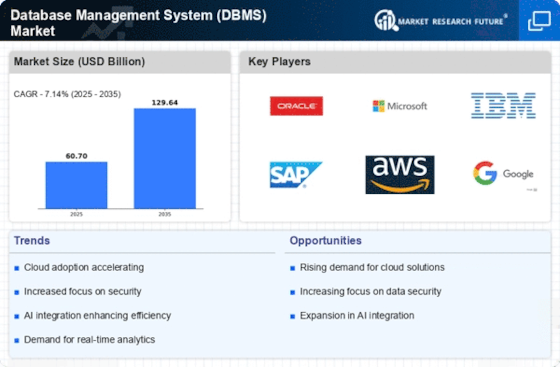


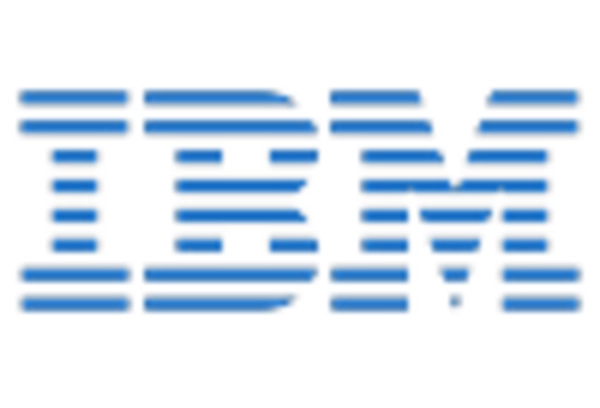
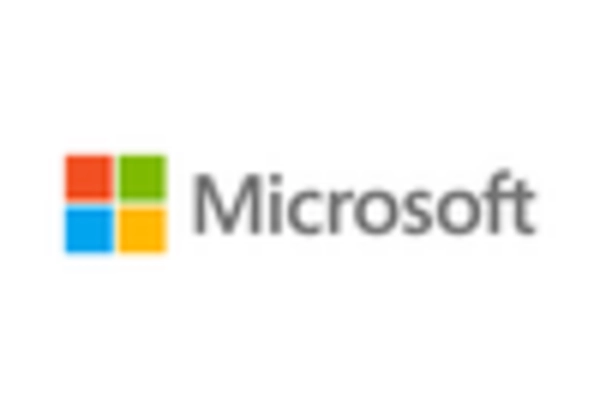
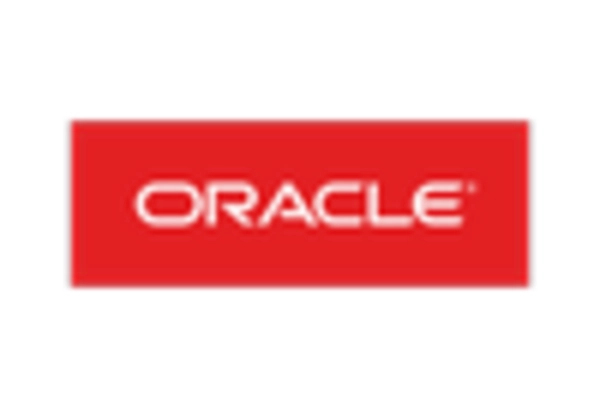
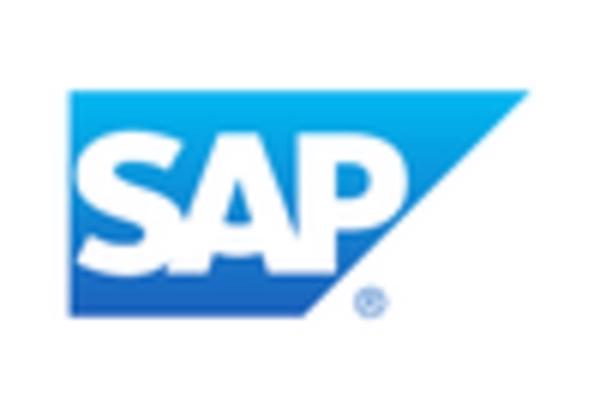









Leave a Comment